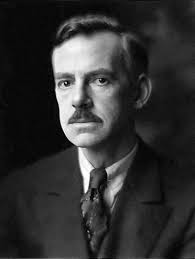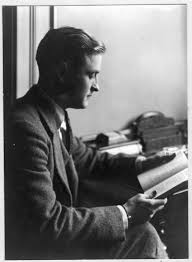Automatic Writing: A Cure for Writer's Block?
by Con Chapman
Writer's block is an affliction suffered by dramatists since the days of Greek tragedy. Here's an entry found in Euripides' diary. “Knocked off around noon, drank some retsina, checked Olympics results. Can't find Medea's motivation. Why would she kill her kids?”

Medea: “Pick up your room—or else!”
You know the feeling. You've got characters on stage, conflicting with each other like cats in a bag, but when all the shouting's done, you're left with—what? A shouting match.
Can't, as the TV announcers say during basketball games, find the handle.
To paraphrase Shakespeare, the greatest playwright never to win a Tony Award, there are more ways to write plays than your philosophy ever dreamed of.
There is, of course, the outline approach, favored by composition instructors. A play put together by this method might look something like this:

The Iceman Cometh
By
Eugene O'Neill
Act I
a. Everybody drinks and talks
b. Hickey arrives
Act II
a. Hickey tells people to face the truth
b. Everybody gets mad at Hickey
Act III
a. Harry's party
b. Hickey announces his wife is dead
Act IV
a. Hickey announces he killed his wife
b. Somebody commits suicide

Eugene O'Neill
That about sums it up. Hardly the sort of thing to build a six-play subscription series around, is it? What this skeleton needs is the flesh of people, living breathing characters. Fortunately, O'Neill could create them, as the Irish say, by the pallet-load.
Most playwrights know people, or are persons themselves. How can you get people to populate your idea for a play? To the playwright, that's what people are for.
Simple. Let them talk through your pen with the magic of automatic writing!

Creepy!
Automatic writing has historically been used primarily by Surrealists, psychics, Bible Belt fundamentalists and other cranks. As a playwright, you may share personality traits with one or more of these groups.
What is automatic writing? André Breton, French Dadaist, is widely credited with the invention (discovery?) of the concept. Breton defined automatic writing as writing without the intervention of one's critical faculty; the writer liberates him or herself from psychic inhibitions, accepts coincidental suggestions from the surrounding environment and . . . just . . . writes.
Andre Breton: “With pen in hand, I try to write . . . I might as well go fly a kite.”
From a playwright's point of view, this method can be used to turn overheard snatches of conversation into dialogue and characters. Like a pearl diver in reverse, take something acquired at the surface of your life, then dive down deep within yourself to imagine what came before, or what might come after, in the life of the person speaking.

For example: You're riding the train home from work in Boston, thinking about a play you're having trouble with, or haven't even started. Close your eyes, open your notebook, take pen in hand and listen: “I've got to go shopping tonight,” one woman says to another. “What for?” her friend asks. “‘Cause these shoes are retahded.”
Or you're standing in line at an airport in Florida. A husband and wife and their kids are returning from vacation. “That was a fun trip,” says the husband with innocent enthusiasm. “I dunno,” says his pale-skinned wife, covered up by a sunhat the size of a throw rug. “I'm not a nature person.”

“Did my watch stop, or did a pelican just land on your head?”
The exercise of imagining the conflicts that lay beneath the surface of these off-hand comments, and what the speakers will be doing an hour later, can be both liberating and instructional. One of the characters you create out of this sort of ephemera may walk into that difficult scene you're struggling with, and serve as a catalyst to get the other characters moving.

Fitzgerald: “Look at all the crazy things my friends said!”
Scott Fitzgerald kept extensive notebooks that included lines waiting to be inserted in the mouths of characters he had not yet fully imagined. The word merchant who assembles a large stock of consigned goods from people in the real world can use them to fill an emergency order for a character, or at least have the beginnings of one on hand.
Of course, if your friends discover your little eavesdropping book, you'll have all the dramatic conflict you'll ever need.
|
2
favs |
1756 views
3 comments |
769 words
All rights reserved. |
Author's Note
The author has not attached a note to this story.
Other stories by Con Chapman
Tags
This story has no tags.

" Automatic writing has historically been used primarily by Surrealists, psychics, Bible Belt fundamentalists and other cranks."
How did you leave out Kerouac?
Love the O'Neill. Smiled all the way through.*
Enjoyed it.
Smiled at this one:
Most playwrights know people, or are persons themselves.
Nice work like always...
*
I guess Kerouac may have been automatic, but I always thought he was more just a non-stop typist. I worked on the film version of Big Sur that was made a few years back--as a lawyer, nothing creative.